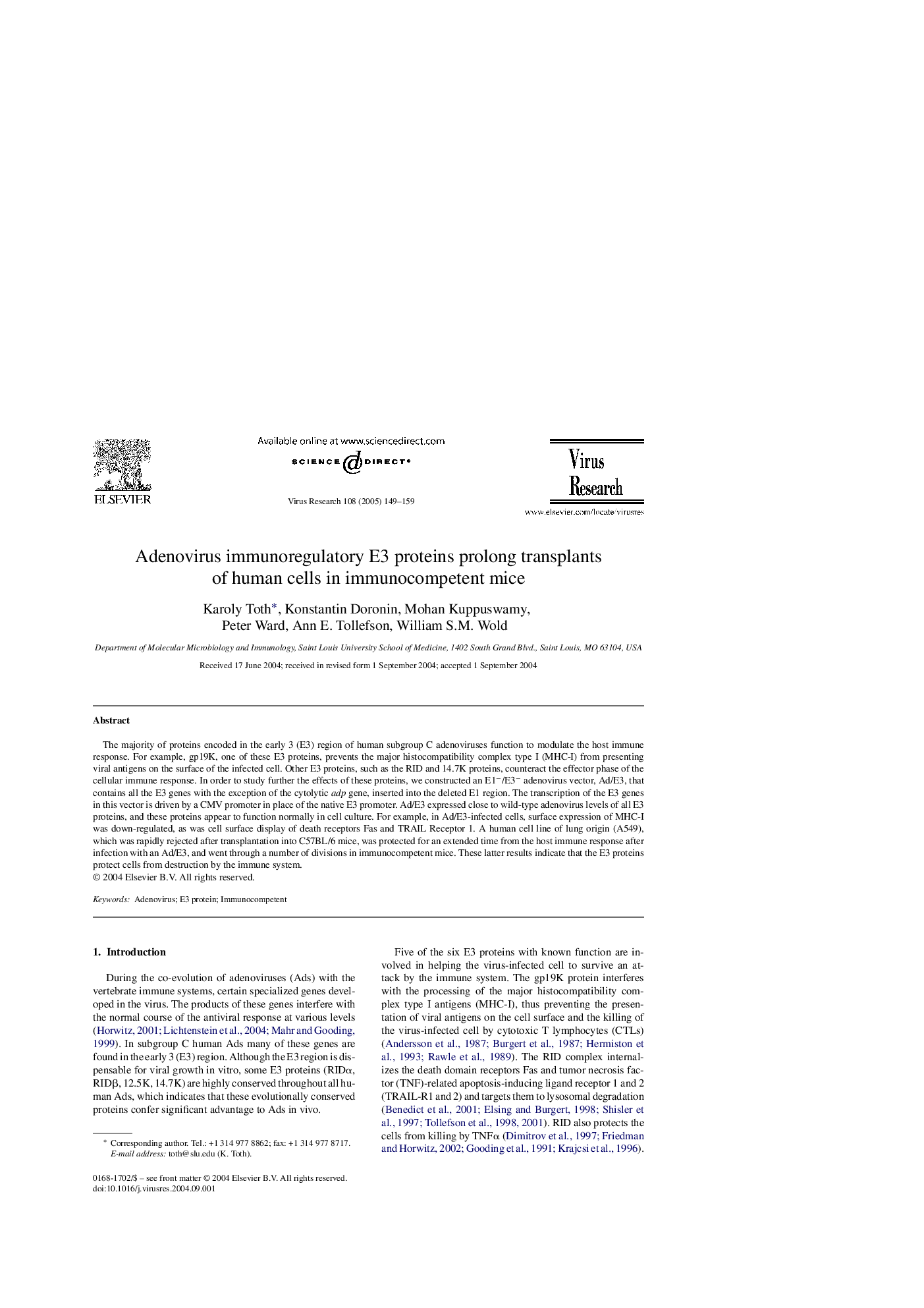| Article ID | Journal | Published Year | Pages | File Type |
|---|---|---|---|---|
| 9289408 | Virus Research | 2005 | 11 Pages |
Abstract
The majority of proteins encoded in the early 3 (E3) region of human subgroup C adenoviruses function to modulate the host immune response. For example, gp19K, one of these E3 proteins, prevents the major histocompatibility complex type I (MHC-I) from presenting viral antigens on the surface of the infected cell. Other E3 proteins, such as the RID and 14.7K proteins, counteract the effector phase of the cellular immune response. In order to study further the effects of these proteins, we constructed an E1â/E3â adenovirus vector, Ad/E3, that contains all the E3 genes with the exception of the cytolytic adp gene, inserted into the deleted E1 region. The transcription of the E3 genes in this vector is driven by a CMV promoter in place of the native E3 promoter. Ad/E3 expressed close to wild-type adenovirus levels of all E3 proteins, and these proteins appear to function normally in cell culture. For example, in Ad/E3-infected cells, surface expression of MHC-I was down-regulated, as was cell surface display of death receptors Fas and TRAIL Receptor 1. A human cell line of lung origin (A549), which was rapidly rejected after transplantation into C57BL/6 mice, was protected for an extended time from the host immune response after infection with an Ad/E3, and went through a number of divisions in immunocompetent mice. These latter results indicate that the E3 proteins protect cells from destruction by the immune system.
Keywords
Related Topics
Life Sciences
Immunology and Microbiology
Virology
Authors
Karoly Toth, Konstantin Doronin, Mohan Kuppuswamy, Peter Ward, Ann E. Tollefson, William S.M. Wold,
